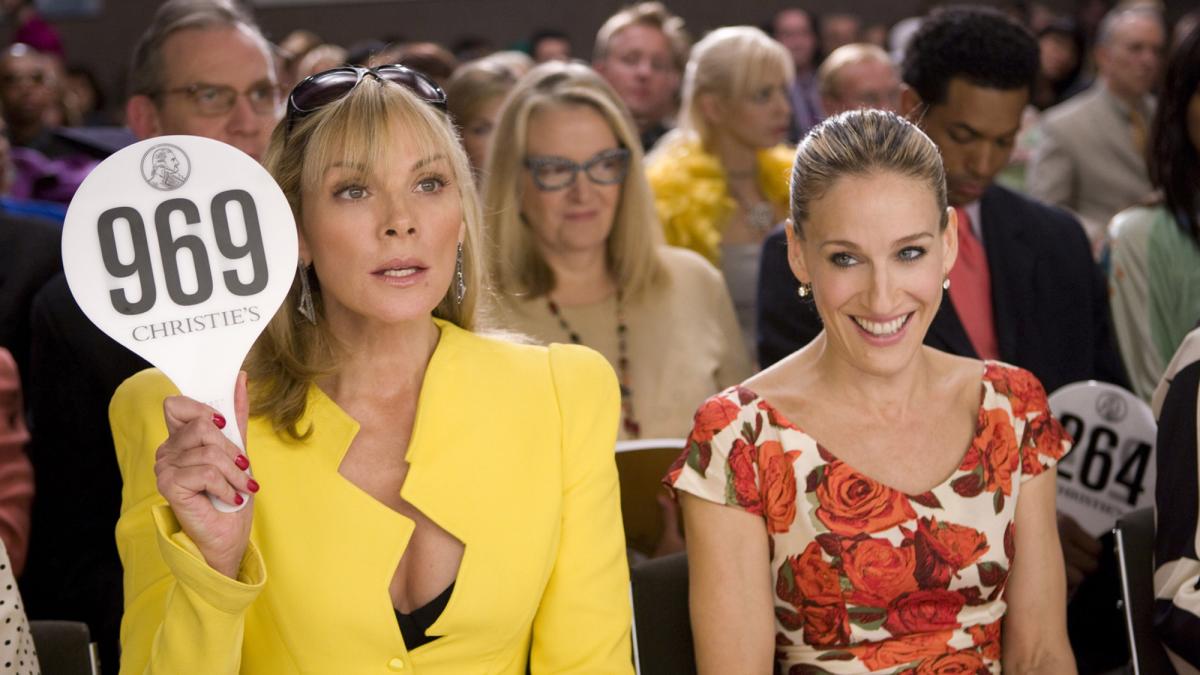
R U single?
If you answered yes, you’re in luck.
According to a heck tonne of studies conducted in the past year, there’s never been a better time in history to be ready to mingle.

The belief that being single is a lonely, transient state we’re all desperate to get out of is as old as time itself. Have you ever seen a Hollywood film that ends with the protagonist walking into the sunset with a cat? Neither have I.
But as CNN reports, 2017 was a boonta year for studies on science of being single, and resoundingly, the results suggest solitude really is bliss. Here are six of the choicest studies that go in to bat for singledom.
Living alone is becoming more popular the world over
Sure, living with your loved one can have serious benefits (the occasional breakfast in bed is one of them), but living solo is becoming the norm.
There have never been as many unmarried adults as there are right now. In 1970, there were 38 million single people in the U.S., and they made up just 28 percent of the population. In 2014, there were 107 million and they comprised 45 percent of the population.
Judging by that wild upswing, we could potentially all be catpeople by 2040. Frankly, we’re cool with that.
In Canada right now, single-person households reign supreme. 28 percent of the population live by themselves. Barbara Mitchell, a professor of sociology and gerontology at Simon Fraser University in British Columbia, attributes this upward swing in single living to changing gender roles and greater individualism.
“A lot of women now have the economic means to afford to live on their own,” said Dr. Mitchell, and many senior women want to have a home to themselves after a lifetime of taking care of other people, she said.
And this trend isn’t just confined to the west.
In this study of Global Increases in Individualism, researchers examined 51 years of data on individualist practices and values across 78 countries and found that individualistic beliefs, like valuing friends more than family, has been on the rise, increasing significantly for 79 percent of the nations across the five decades.
Marriage is losing relevance
According to a 2017 Census Bureau report of ‘Murica, more than half of the participants in a nationally representative sample (55 percent) said that getting married was not an important criterion for becoming an adult. The same percentage also said that having a kid was no longer an important milestone of adulting.
Now, completing formal schooling and having full-time employment is considered (by 95 percent of people) to be at least somewhat important.
High schoolers aren’t as into sex anymore
It’s true; teens are just not as horny as they used to be. Or at least, they’re not acting on it as their parents did.
This American study of 24,000 students found that while 80% of final year students were not virgins, only about 5-10% were having sex on any given weekend.

The decline in doin’ the dirty was represented in this study outta La Trobe University, where 25% of high school students surveyed in 2014 had had sex – compared to 33% of high school students in 1977. Furthering that, sexual assaults and teen pregnancies have also declined, while the use of condoms is up.
What’s more, a study by Australian Study of Health and Relationships found that across people aged 16-69, the frequency Australians were having sex across all age groups had declined in the 11 years since their last survey, from 1.8 times per week in 2003 to 1.4 times per week in 2014.
Less sex = more time to improve yourself. Who needs intimacy when you can rollerblade?
Single people have more sex than married people
It ain’t just teens that are getting jiggy with it less. Over 18s are doing it less these days, too.
Analysing survey data collected from more than 26,000 people between 1989 and 2014, researchers found that the average person now has sex around nine fewer times per year than the average person in the early ’90s.
This wasn’t evenly spread across all demographics, though. The data showed that the drop was most pronounced for people who were married or divorced, while folks who had been single the whole time were now having more sex than married couples.
No, relationships don’t necessarily boost self-esteem
 step brothers: irrefutable evidence of this
step brothers: irrefutable evidence of this
In this landmark study, researchers Eva C. Luciano and Ulrich Orth studied the link between romantic relationships and self-esteem. They observed 9,000 adults in Germany as they entered or ended romantic relationships or stayed single.
Their conclusion:
“Beginning a relationship improves self-esteem if and only if the relationship is well-functioning, stable, and holds at least for a certain period (in the present research … one year or longer).”
People who started new romantic relationships that turned to shit within a year ended up with lower self-esteem than the people who stayed single.
Marriage wasn’t a magic cure, either. People who married enjoyed no better self-esteem than those who stayed in romantic relationships without the wedding band.
Single women are healthier than married ones
The idea that getting married can improve your health makes enough logical sense. When you’re living with a partner you care about, you’re less likely to allow them to indulge in a garlic bread-induced coma on the couch, and vice versa. Right?
Wrong.
Another US study found that when women marry, their health outcomes worsen. Researchers followed 79,000 women between the ages of 50 and 79 over a three-year period, tracking whether they started a serious relationship, got married or stayed single. They also kept tabs on health markers like waist size, body-mass index, and blood pressure, and asked them about their smoking, drinking, exercise, and eating habits.
Almost every significant finding favoured women who stayed single or got divorced over married women.
Women who married gained more weight and drank more than those who stayed single.
On the contrary, women who divorced ate healthier, exercised more and had smaller waists than those who stayed married. Of course, the study focused heavily on physical health – it’s unclear if these divorcees were actually happy and mentally secure, or just slimmer.
Convinced being single ain’t all that bad yet? If not:








